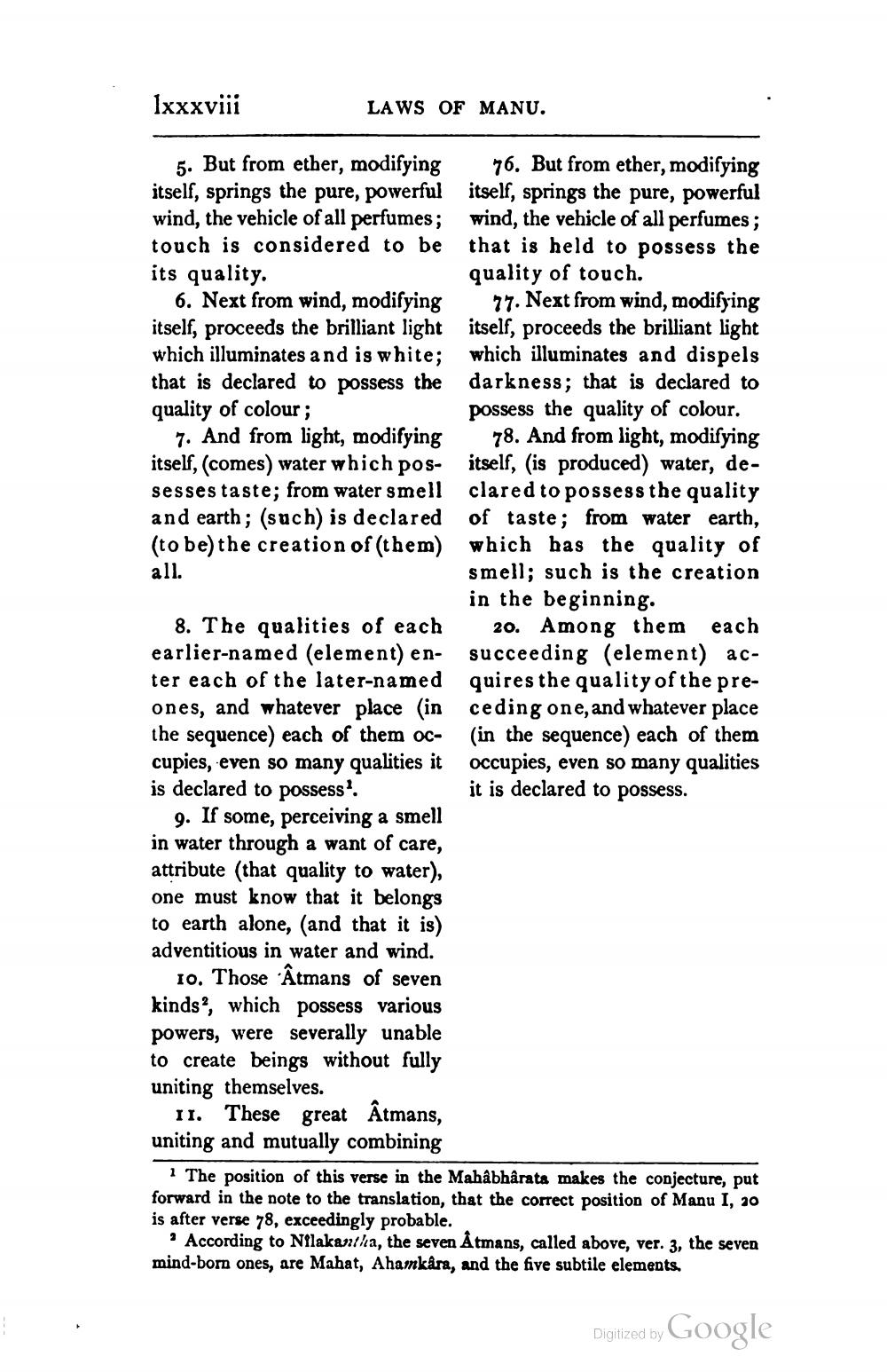________________
lxxxviii
5. But from ether, modifying itself, springs the pure, powerful wind, the vehicle of all perfumes; touch is considered to be its quality.
6. Next from wind, modifying itself, proceeds the brilliant light which illuminates and is white; that is declared to possess the quality of colour;
7. And from light, modifying itself, (comes) water which possesses taste; from water smell and earth; (such) is declared (to be) the creation of (them) all.
LAWS OF MANU.
8. The qualities of each earlier-named (element) enter each of the later-named ones, and whatever place (in the sequence) each of them occupies, even so many qualities it is declared to possess1.
9. If some, perceiving a smell in water through a want of care, attribute (that quality to water), one must know that it belongs to earth alone, (and that it is) adventitious in water and wind.
10. Those Âtmans of seven kinds, which possess various powers, were severally unable to create beings without fully uniting themselves.
II.
These great Atmans,
uniting and mutually combining
76. But from ether, modifying itself, springs the pure, powerful wind, the vehicle of all perfumes; that is held to possess the quality of touch.
77. Next from wind, modifying itself, proceeds the brilliant light which illuminates and dispels darkness; that is declared to possess the quality of colour.
78. And from light, modifying itself, (is produced) water, declared to possess the quality of taste; from water earth, which has the quality of smell; such is the creation in the beginning.
20. Among them each succeeding (element) acquires the quality of the preceding one, and whatever place (in the sequence) each of them occupies, even so many qualities it is declared to possess.
1 The position of this verse in the Mahâbhârata makes the conjecture, put forward in the note to the translation, that the correct position of Manu I, 20 is after verse 78, exceedingly probable.
" According to Nilakana, the seven Atmans, called above, ver. 3, the seven mind-born ones, are Mahat, Ahamkâra, and the five subtile elements.
Digitized by Google




